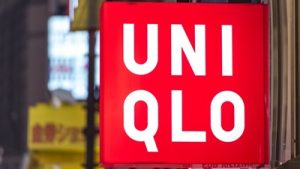「パラサイト半地下の家族」が初の快挙
2020年のアカデミー賞は、韓国の『パラサイト 半地下の家族』が、英語以外の言語映画として初の快挙でした。
"Parasite," a dark social satire from South Korea, won the Oscar for best picture, making history as the first film in a language other than English to claim the movie industry's highest honor.
※satire=風刺、風刺文学作品 social satire=社会風刺作品
半地下に住む極貧一家と、豪邸に暮らす富豪一家の貧富の差は、技術力やK-popで知られる韓国の矛盾点や、アジア4位の経済国の持つ者と持たない者の差=the widening gap between the haves and the have nots in Asia’s fourth-biggest economyを浮き彫りにしています。
The film is about the gap between rich and poor in modern Seoul. The extreme disparity between the two families - the affluent Parks and the poor Kims - is shown through their two homes. One a gleaming mansion up on the hills above Seoul; the other a dingy semi-basement.
※disparity=不均衡、相違
※gleaming mansion=キラキラの豪邸
※dingy semi-basement=薄汚い半地下 →半地下はhalf-basement flatなども。
The film exposes the paradox(逆説、矛盾の論→contradiction) at the heart of a country better known around the world for its technological prowess (技術力)and pop music.
貧しい一家が、裕福な一家にじわじわと侵入していくこの映画は、合計で4つの賞を取りました。
Bong Joon-ho’s comedy-drama about an impoverished family who infiltrates the household of a wealthier one is the first film not in the English language to take the top prize. It also took best director, best original screenplay and best international film.(監督賞、脚本賞、外国映画賞)
※impoverished=貧しい、(裕福であった人が)貧困に陥った
※infiltrate=侵入する →insinuate ①あてこする、嫌味を言う ②いつの間にか徐々に入り込む
英語が世界を席巻している今の世の中、字幕を毛嫌いする傾向は、英語圏以外の映画産業の長年の壁でした。
The global dominance of the English language and a widespread aversion to subtitles has long been a challenge for filmmakers working in other tongues.
※aversion=(根強い)嫌悪感、毛嫌い ラテン語でturn away
※subtitle=①サブタイトル、副題②subtitlesで映画やテレビの字幕、スーパー superimposition
今回の受賞は、外国語映画を押しのけてきたアカデミーの一大転機で、外国語映画の先駆になるかどうか注目されています。
The win was a watershed moment for the Academy Awards, which has long been content to relegate international films to their own category.
※watershed=分水界、重大な分岐点、一大転機
※relegate=追いやる、左遷する、追放する
Coming into the Oscars, “Parasite” had gathered much attention as to whether it would become the vanguard for foreign films’ breakthrough into the English language market.
※vanguard=(軍事)先兵、先遣隊/先頭 ②(各種の運動の)先駆者、指導的地位
以下は、半地下の歴史について述べたBBCの抜粋です(英語/日本語)
The banjihas(韓国語で半地下) are not just a quirk of Seoul architecture, but a product of history.
These tiny spaces actually trace their roots back decades, to the conflict between North and South Korea.
In 1968, North Korean commandos slipped into Seoul on a mission to assassinate South Korean President Park Chung-hee.
The raid was thwarted, but the tension between the two Koreas intensified.
That same year, North Korea also attacked and captured a US Navy spy ship, the USS Pueblo.
Armed North Korean agents infiltrated South Korea, and there were a number of terrorist incidents.
Fearing an escalation, in 1970 the South Korean government updated its building codes, requiring all newly built low-rise apartment buildings to have basements to serve as bunkers in case of a national emergency.
Initially, renting out such banjiha spaces was illegal.
But during the housing crisis in the 1980s, with space running short in the capital, the government was compelled to legalise these underground spaces to live in.


